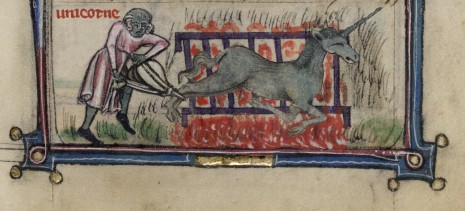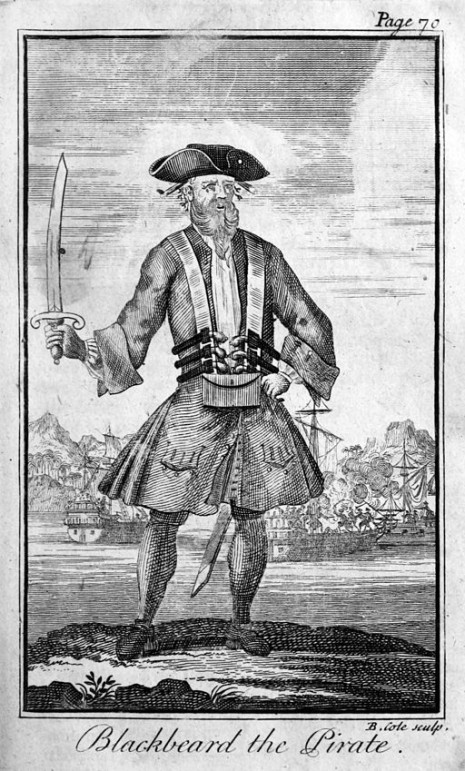Note: In honor of April Fool’s Day, I’m reposting a previous blog about a great April Fool’s Day prank by the fun lovin’ Guybrarians and medieval curators at the British Library. The problem is, now I’ve tipped you off that it was a prank. To really appreciate the joke, please click on the link to the news item first, and pretend you don’t know it’s a prank.
 I recently stumbled across a remarkable news item from this past April. (Don’t judge. That’s pretty cutting-edge for a history blog.) Curators of the medieval manuscripts division at the British Library announced that a long-lost medieval cookbook has been discovered. It contains recipes for hedgehogs, blackbirds and unicorns. The library’s curators believe that the cookbook was compiled by a well-known fourteenth century chef named Geoffrey Fule, who worked in the kitchens of Philippa of Hainault, Queen of England (1328-1369). “After recipes for herring, tripe and codswallop (fish stew, a popular dish in the Middle Ages) comes that beginning ‘Taketh one unicorne’. The recipe calls for the beast to be marinaded [sic] in cloves and garlic, and then roasted on a griddle.”
I recently stumbled across a remarkable news item from this past April. (Don’t judge. That’s pretty cutting-edge for a history blog.) Curators of the medieval manuscripts division at the British Library announced that a long-lost medieval cookbook has been discovered. It contains recipes for hedgehogs, blackbirds and unicorns. The library’s curators believe that the cookbook was compiled by a well-known fourteenth century chef named Geoffrey Fule, who worked in the kitchens of Philippa of Hainault, Queen of England (1328-1369). “After recipes for herring, tripe and codswallop (fish stew, a popular dish in the Middle Ages) comes that beginning ‘Taketh one unicorne’. The recipe calls for the beast to be marinaded [sic] in cloves and garlic, and then roasted on a griddle.”
But then the article mentions a recipe from the book that calls for baking blackbirds into a pie. The writer of the article speculates that this medieval recipe book might be where that traditional English nursery rhyme originated.
That’s what tipped me off that the article was a bunch of codswallop.* From what I’ve read, that well-known nursery song originated as a coded message in the early 1700s to recruit pirates for the crew of the notorious Blackbeard. Every line means something, starting with the “Sing a song of sixpence/a pocketful of rye.” Blackbeard promised recruits a standard payment of sixpence a day, and also a “pocket full” (a leather pouch) of rye whiskey. The “blackbirds” were Blackbeard’s men, who sometimes feigned distress in order to lure unsuspecting ships to sail close, when the men would jump out and board it.
 Then I noticed the date of the news item—April 1st. And I noted the name of the alleged cookbook author—“Geoffrey Fule.” A quick search proved that no such cookbook has been found, and that it was all an April Fool’s Day prank by those zany, fun-lovin’ medievalist curators at the British Library.
Then I noticed the date of the news item—April 1st. And I noted the name of the alleged cookbook author—“Geoffrey Fule.” A quick search proved that no such cookbook has been found, and that it was all an April Fool’s Day prank by those zany, fun-lovin’ medievalist curators at the British Library.
*which is another clue that should have tipped me off but didn’t. According to several sources, “codswallop,” meaning “Yeah, right,” or “As IF,” or “balderdash,” didn’t enter the language until–cough–1959.
credits:
Detail of a unicorn on the grill in Geoffrey Fule’s cookbook, England, mid-14th century (London, British Library, MS Additional 142012, f. 137r)
Blackbeard the Pirate, Engraved by Benjamin Cole, 1724